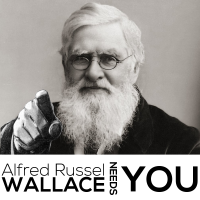How do you react to marginalia? The gentle remarks, questions, or displays of disgust scribbled in the margins of innumerable books, articles and more across the world.
Month: July 2014
6 Expat academics talk of their experiences in globalised higher education job market
As I begin to approach the end of my PhD I, like so many others, have to start thinking about jobs once again. As a result, you end up attending a huge number of sessions on post-PhD life.
Some are, of course, not very helpful other are very helpful indeed (for example, see my notes on the HistoryLab event on “Getting Grants, Getting Published and Staying Sane: Life After the PhD“). One of the things that is often mentioned is the internationalisation or globalisation of Higher education. However, in the most part, we don’t get to hear experiences of this “from the horses mouth”. Inevitably most who could offer advice are abroad and unlikely to think it worthwhile to travel to the UK to give a simple talk on their experiences. (more…)
3 Simple Steps you can do to help the “Alfred Russel Wallace in Translation” Project
TALK in London & Oxford: "Indefatigable Naturalists: Wallace and Darwin on the Evolutionary Trail" by Jim Costa
 On 24 and 30 July 2014, Jim Costa will be delivering a paper on Wallace and Darwin entitled “Indefatigable Naturalists: Wallace and Darwin on the Evolutionary Trail” in both London and Oxford.
On 24 and 30 July 2014, Jim Costa will be delivering a paper on Wallace and Darwin entitled “Indefatigable Naturalists: Wallace and Darwin on the Evolutionary Trail” in both London and Oxford.
Here is the abstract:
Alfred Russel Wallace was the last of the great Victorian naturalists, and by the end of his long life in 1913 he was also one of the most famous scientists in the world, lauded by leading learned societies, British royalty and US Presidents alike. Against all odds—lacking wealth, formal education, social standing or connections—Wallace became the pre-eminent tropical naturalist of his day. He founded one entirely new discipline—evolutionary biogeography—and, with Darwin, co-founded another: evolutionary biology. Yet today Darwin’s name is universally recognised, while Wallace is all but unknown. Jim traces the independent development of Wallace’s and Darwin’s evolutionary insights, exploring the fascinating parallels, intersections and departures in their thinking.
Drawing on Wallace’s “Species Notebook” (the most important of Wallace’s field notebooks kept during his southeast Asian explorations of the 1850s) Costa puts Wallace’s thinking into a new light in relation to that of his more illustrious colleague. He also examines the ups and downs of Wallace’s relationship with Darwin, and critically evaluates the misleading “conspiracy theories” that Wallace was wronged by Darwin and his circle over credit for the discovery of natural selection. Tracing the arc of Wallace’s reputation from meteoric rise in the 19th century to virtual eclipse in the 20th, Costa restores Wallace to his proper place in the limelight with Darwin.
PAPER: "Prometheus Unbound?: Alfred Russel Wallace, Vaccination Acts and the ‘Progress Problem’ in the late-Nineteenth Century" by Ahren Lester
 I have just made my paper entitled “Prometheus Unbound?: Alfred Russel Wallace, Vaccination Acts and the ‘Progress Problem’ in the late-Nineteenth Century” available on Academia.edu. Here is the abstract:
I have just made my paper entitled “Prometheus Unbound?: Alfred Russel Wallace, Vaccination Acts and the ‘Progress Problem’ in the late-Nineteenth Century” available on Academia.edu. Here is the abstract:
The numerous Vaccination Acts passed between 1840 and 1907 were innovations in every sense of the word. They heralded a new approach to the role of the state in the population’s health. They consolidated the new relationship between the state and medical science. They also ultimately brought forth a new term: ‘conscientious objector.’ For us—sitting in the comfort of the twenty-first century—this innovation was unquestionably a boon to humanity. Smallpox is all but eradicated. In this regard, state-directed schemes such as the Vaccination Acts were key vectors of this victory over one of the great scourges of humanity.
Nonetheless, a significant minority of the population vehemently opposed the Vaccination Acts. Their ranks did contain a number of cranks and charlatans. However, they also included well-respected scientific figures whose opposition was genuine and at least partly justified. One such figure was the co-discoverer of natural selection with Darwin: Alfred Russel Wallace.
This paper considers why Wallace was opposed to such an apparently beneficent procedure. He was no anti-science anti-innovator. Instead he provided a compelling critique of a scientific innovation we take for granted today. He questioned the virtue of state medicine. He questioned the growing power and unaccountability of the medical profession. He questioned their statistical evidence (in the process offering an innovative fully-statistical assessment of the value of a medical procedure).
What emerges is a genuine concern for what may be termed ‘medical ethics.’ This developed from Wallace’s broader belief—unusual at the time—that scientific innovation did not inherently represent a cut-and-dry case of ‘progress.’ Scientific innovations had to be weighed against deeper political, social and ethical considerations. This stance—controversial at the time—appears comparatively commonplace today. Wallace’s prescience reflects a mature and self-conscious appreciation of potential problems of scientific progress in regards to man.


